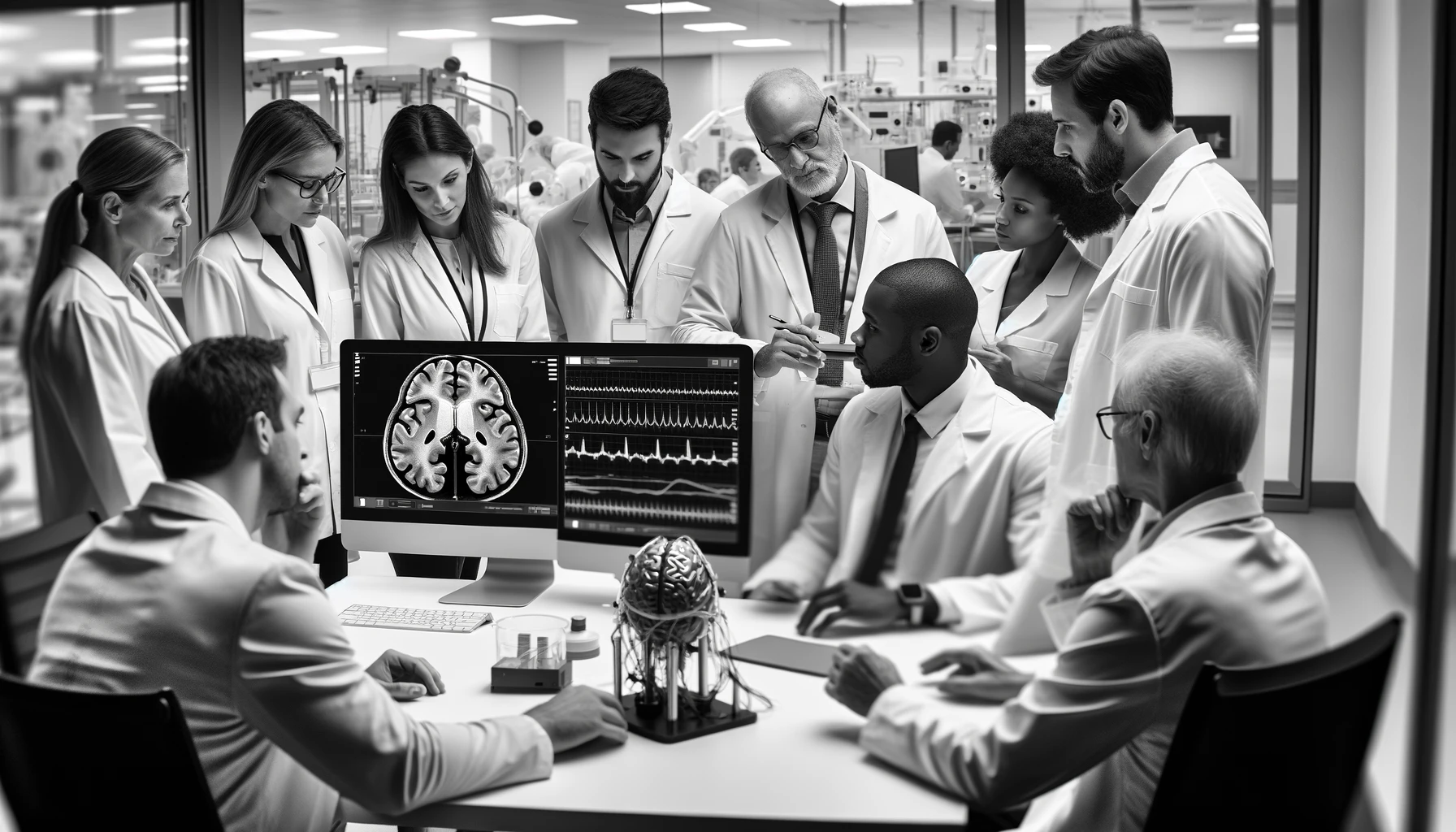
Advancements in Brain-Computer Interface Technology Spark Excitement and Ethical Debates
Synchron Inc., a formidable competitor to Elon Musk’s Neuralink brain implant startup, is gearing up for a substantial clinical trial aimed at seeking commercial approval for its innovative brain implant device. In an interview with Reuters, CEO Thomas Oxley revealed that Synchron is set to initiate an online registry to recruit patients interested in participating in the trial. The trial, expected to include dozens of participants, has already garnered interest from approximately 120 clinical trial centers eager to collaborate on this groundbreaking endeavor.
Advancements in Brain-Computer Interface Technology:
Synchron, headquartered in New York, has made significant progress in the development and testing of its brain implant device, placing it ahead in the race compared to Neuralink. Both companies share a common goal: to assist paralyzed individuals in typing on computers by interpreting brain signals. Synchron’s device, which received preliminary testing authorization in the United States in July 2021, has already been successfully implanted in six patients. Previous trials in Australia involving four patients reported no serious adverse side effects, demonstrating the safety and feasibility of the technology.
Trial Preparation and Collaboration:
The forthcoming trial, which aims to expand the scope of participants, will focus on individuals paralyzed due to conditions such as ALS, stroke, and multiple sclerosis. Collaborative efforts between renowned institutions such as Mount Sinai in New York, the University at Buffalo Neurosurgery, and the University of Pittsburgh Medical Center (UPMC) underscore the significance and scope of this pioneering study. Dr. David Lacomis of UPMC emphasized the ongoing progress of the preliminary human testing, highlighting the meticulous safety monitoring and data collection involved.
Addressing Ethical and Regulatory Concerns:
As Synchron advances towards larger-scale trials, ethical and regulatory considerations come into sharper focus. The FDA plays a crucial role in overseeing the approval process, ensuring safety, efficacy, and ethical standards are met. The screening of stroke patients presents unique challenges, with the FDA mandating non-invasive tests to assess eligibility for implantation. By broadening the patient population, Synchron aims to address concerns about market sustainability and accessibility, potentially expanding the reach of this groundbreaking technology to a wider demographic.
Implications and Future Prospects:
The emergence of Synchron as a formidable competitor to Neuralink heralds a new era in brain-computer interface technology. With backing from prominent investors including Jeff Bezos and Bill Gates, Synchron’s innovative approach and collaborative endeavors signal optimism for the future of neural interface technology. As the clinical trial progresses and regulatory milestones are achieved, the potential impact on individuals with neurological disorders could be transformative, offering hope and improved quality of life.
Challenges and Opportunities in Neurological Research:
Despite the promising advancements, challenges persist in the field of neurological research. Ethical considerations surrounding invasive procedures and the long-term implications of brain implant technology raise important questions that require careful deliberation. Moreover, the accessibility and affordability of such advanced treatments remain key concerns, necessitating a concerted effort from stakeholders to ensure equitable access for all patients.
Future Directions and Collaborative Efforts:
Looking ahead, continued collaboration between academia, industry, and regulatory bodies will be paramount in driving innovation and ensuring the responsible development of neurotechnology. Multidisciplinary research initiatives that integrate neuroscience, engineering, and ethics hold the promise of unlocking new frontiers in understanding the human brain and addressing neurological disorders. By fostering an environment of collaboration and transparency, the potential for groundbreaking discoveries and life-changing interventions remains within reach.
Conclusion:
As Synchron prepares to embark on a landmark clinical trial, the convergence of cutting-edge technology, collaborative research, and regulatory oversight paves the way for transformative advancements in neurology. While challenges and ethical considerations remain, the potential benefits of brain implant technology in enhancing human capabilities and addressing neurological disorders underscore the importance of ongoing innovation and interdisciplinary collaboration in this field. As society navigates the complexities of integrating technology into healthcare, the pursuit of ethical, inclusive, and patient-centered approaches will be essential in realizing the full potential of neurotechnology for the betterment of humanity.












